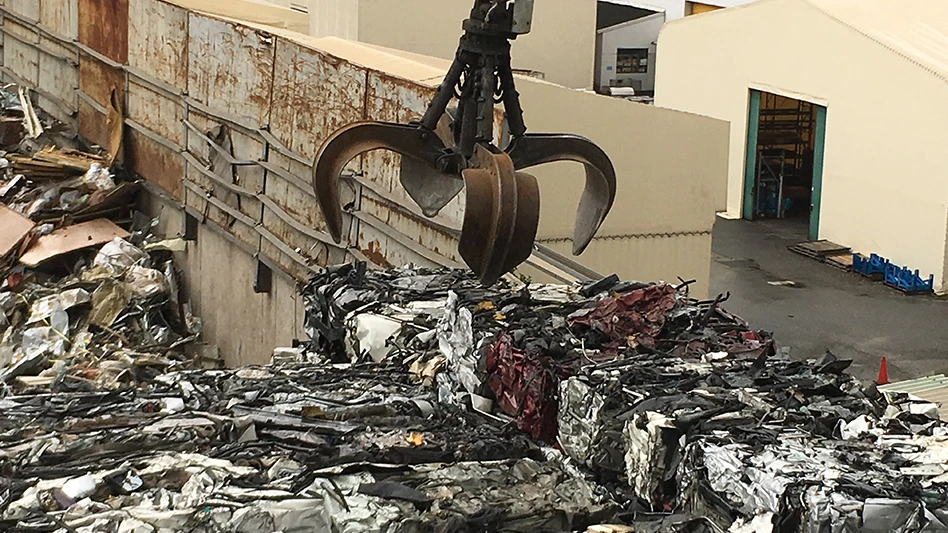The Fair and Accurate Credit Transactions Act of 2003 (FACTA), which amended portions of the Fair Credit Reporting Act, can be considered one of the biggest opportunities for the secure document destruction industry.
This legislation mandates that any company that handles consumer credit reports needs to properly dispose of the documents. Often times this means shredding the material.
RAISING AWARENESS
FACTA was passed three years ago, with more detailed rules being added in 2005.
The act’s main thrust is to fight identity theft by providing consumers with expanded opportunities to access their credit reports and the ability to correct inaccuracies on their reports.
Any company or person who maintains or has in their possession consumer information derived from consumer credit reports is affected by FACTA. These types of businesses include lending agencies, resellers of consumer reports, employers, government agencies and auto dealerships, for example.
How has the advent of FACTA affected secure shredding firms? For one, they are starting to see greater demand for their services.
Tom Caso, vice president and general manager of Shred-It San Diego, a franchise of Ontario, Canada-based Shred-It, says that while many of the top-tier companies are sophisticated enough to understand the implications of FACTA as well as other pieces of legislation that seek to safeguard confidential information, many "second tier" companies such as retail operations are only now beginning to understand these issues and responsibilities. These companies don’t typically generate as much confidential documentation as larger financial institutions or medical centers. However, under the broad net of FACTA, many of these companies also need to address the proper handling and disposal of consumer credit reports.
"Smaller firms from the retail side are getting tuned into FACTA," Caso says. "Because they are handling credit card information, they are becoming a lot more interested in shredding services."
Historically, many smaller retailers affected by FACTA have shred in house in light of their smaller volumes of material. However, with the explosion of identity theft issues, many of these same companies have decided that it is better to shred as many of these documents as possible.
Some of these retail operations have also realized that it is more cost-effective to use an outside vendor to shred documents, creating more opportunities for document destruction firms.
While shredding firms are finding greater interest in their services, Caso says that educating customers continues to be an on-going process. For example, he says that when his company began operating around 12 years ago, companies used two containers—one for documents to be recycled and a second, more secure container for documents destined for the shredder. However, with all the different privacy concerns today, he recommends to his clients, "When in doubt, have all the paper shredded."
Ray Barry, vice president of sales and marketing with Shred First LLC, a Spartanburg, S.C.-based shredding firm, says that of the various types of businesses affected by FACTA legislation, automobile dealerships seem to be more directly impacted. "Auto dealers are probably the most affected by FACTA, in that before FACTA most of them didn’t give outsourcing destruction a thought. But now, more and more auto dealerships are beginning to understand the importance of protecting their customers’ sensitive information due to FACTA opening their minds," he says.
While more companies are becoming cognizant of the need to have their documents shredded, for shredding firms, a good selling point is to demonstrate the cost benefit of using an outside service, Caso says. "When they sit down and do the math they will find out using an outside service is more cost-effective," he says.
Shredding companies often talk about the importance of educating the customer. However, what does that education entail? With FACTA, HIPAA, Sarbanes Oxley and other bits of legislative flotsam clouding the decision making process, a pastiche of literature could make the selling of the service more challenging.
Caso says that Shred-It has addressed this issue company-wide and on Shred-It San Diego’s Web site. "Shred-It has done a good job on what needs to be shredded. We have a whole bunch of material produced by Shred-It that covers many off these issues."
Shred First’s Barry says that the FACTA brochure produced by the National Association for Information Destruction (NAID) is a "great sales tool." He says, "We have used this tool as an ‘easy on the eyes’ way to educate a prospect on how FACTA affects them. It is every well put together and it brings out the benefits of why these target markets need to use a reputable shredding contractor."
ENFORCEMENT NEEDED
Sheila Longie with Document Destruction Services Ltd., a Lakeville, Minn.-based mobile shredding operation, says that using FACTA literature is a helpful tool when calling on accounts. However, it is only one of a number of tools that are needed, she says. In fact, Longie says that educating the customer is a difficult task. One problem is that despite federal and state legislation, there truly hasn’t been any significant fine levied against companies that fail to implement a proper document destruction program.
"No one is getting slapped for [violating] FACTA," Longie says.
Tom Thompson, founder of Information Protection Solutions of America (IPSA), based in Chicago, agrees, saying one reason many companies have not embraced FACTA is because there hasn’t been any significant fine levied against a company that fails to meet these new requirements. "[FACTA] isn’t a big selling tool with bigger companies," he says.
Cory Tomcyzk with Industrial Recyclers of Wisconsin, Mosinee, Wis., says he sees even less of an advantage to bringing up various legislative initiatives. "When I talk about it, most people’s eyes glaze over." However, while he hasn’t seen much interest from customers in learning about the repercussions and mandates for FACTA (and other initiatives), he does find that customers are more interested in NAID certification procedures. "Over the past six to eight months there seems to be more people who are interested in NAID certification," he says.
Sponsored Content
Labor that Works
With 25 years of experience, Leadpoint delivers cost-effective workforce solutions tailored to your needs. We handle the recruiting, hiring, training, and onboarding to deliver stable, productive, and safety-focused teams. Our commitment to safety and quality ensures peace of mind with a reliable workforce that helps you achieve your goals.
THE SECOND WAVE
Most shredding professionals contacted for this feature say that their top-tier clients have fairly effective shredding policies in place. Where the challenges and opportunities lie is in the "second tier" of companies, which are typically smaller operations or those that are not as closely tethered to the heavily regulated lending industry.
While auto dealers, retail stores and other types of companies don’t generate as much confidential documentation as banks, many of these companies also have responsibilities under FACTA. However, a number of shredding firms say that these "second tier" companies haven’t demonstrated a concerted effort to shred the right documents.
Where the problem becomes most acute is in office settings that have both shredding and office recycling programs in place.
Tomcyzk says he sees many companies that place material that should be shredded in the office recycling bin. To remedy this, he says that all the paper Industrial Recyclers collects from office environments, whether placed in an office recycling bin or a secure shredding container, is shredded, eliminating the chance that a document will be improperly disposed.
While these second-tier companies don’t universally embrace shredding services, document destruction firms must be careful in how they approach these prospects. Longie says that scare tactics should not be used on customers because they will often turn them off.
Don Weijland with Paper Recycling & Shredding Specialists Inc., San Dimas, Calif., says that while he does bring NAID’s FACTA brochure on various calls, he finds that most companies are not necessarily making the decision to establish a shredding program in light of FACTA, but opt for the service because of other factors. "They know from a privacy standpoint what they have to do," Weijland says.
The author is senior and Internet editor of SDB magazine and can be reached via e-mail at dsandoval@gie.net.
Get curated news on YOUR industry.
Enter your email to receive our newsletters.

Explore the October 2006 Issue
Check out more from this issue and find your next story to read.
Latest from Recycling Today
- Circular Services breaks ground on north Texas MRF
- Tariff uncertainty results in choppy nonferrous scrap flows
- CATL, Ellen MacArthur Foundation establish battery partnership
- Greif announces price hike for all grades of URB products
- Ascend Elements appoints new president, CEO
- Culligan International to provide aluminum water bottles at Chicago running events
- Returpack reports increased DRS activity in Sweden
- Trade groups align against European export restrictions







